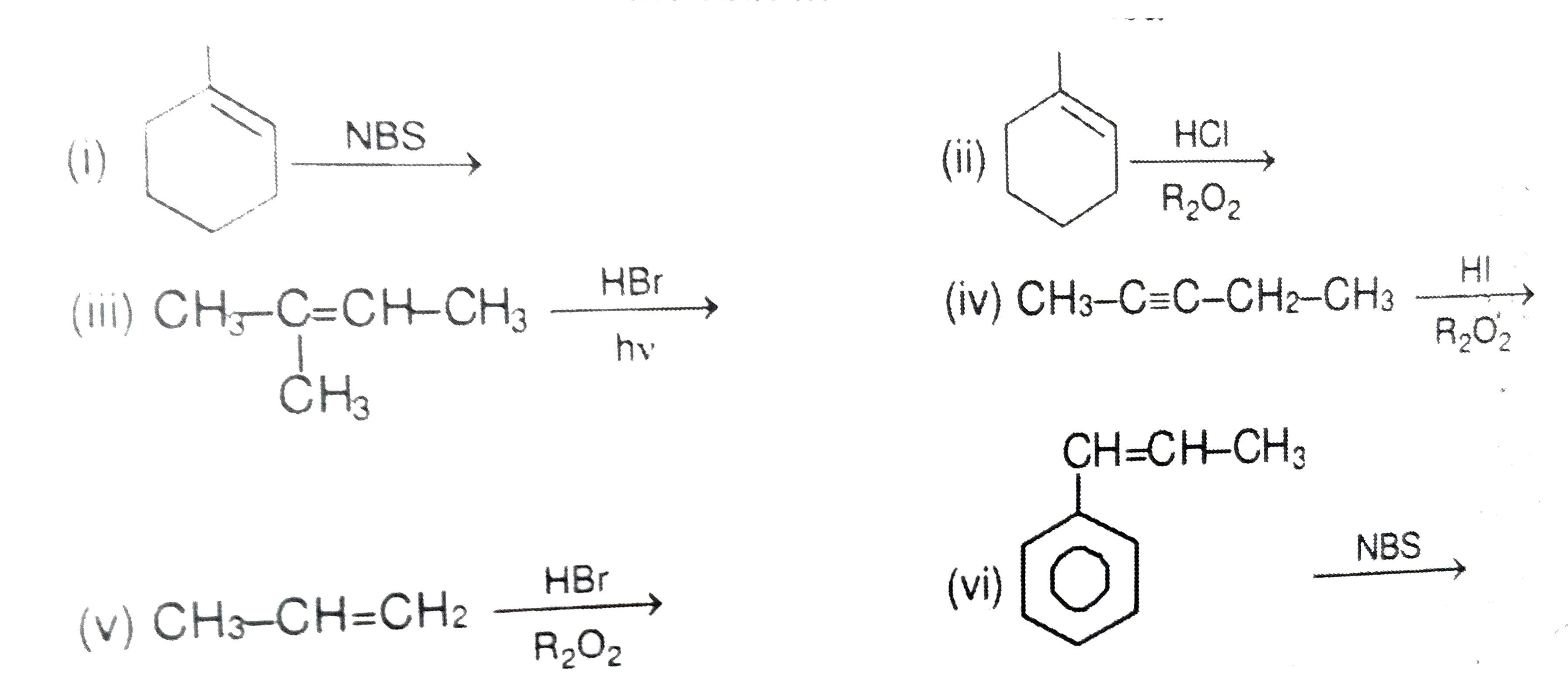Why should the monomer used in addition polymerisation through free radical pathway be very pure?
Step-by-Step Solution:
1. Understanding Addition Polymerization:
- Addition polymerization is a process where monomers join together to form a polymer. This process can occur through various pathways, one of which is the free radical pathway.
2. Role of Monomers:
- Monomers are the building blocks of polymers. The quality and purity of these monomers significantly affect the properties of the resulting polymer.
3. Importance of Purity:
- The monomer used in addition polymerization must be very pure. This is crucial because impurities can interfere with the polymerization process.
4. Effect of Impurities:
- If there are trace impurities in the monomer, these impurities can act as inhibitors. Inhibitors are substances that slow down or stop the polymerization reaction.
5. Consequences of Inhibitors:
- The presence of inhibitors due to impurities can lead to the formation of polymers with shorter chain lengths. This is because the inhibitors can terminate the growth of the polymer chains prematurely.
6. Final Conclusion:
- Therefore, to ensure that the polymerization process proceeds effectively and produces polymers with the desired properties (such as chain length and strength), the monomer must be very pure. Even a small amount of impurity can significantly affect the outcome.
- Addition polymerization is a process where monomers join together to form a polymer. This process can occur through various pathways, one of which is the free radical pathway.
- Monomers are the building blocks of polymers. The quality and purity of these monomers significantly affect the properties of the resulting polymer.
- The monomer used in addition polymerization must be very pure. This is crucial because impurities can interfere with the polymerization process.
- If there are trace impurities in the monomer, these impurities can act as inhibitors. Inhibitors are substances that slow down or stop the polymerization reaction.
- The presence of inhibitors due to impurities can lead to the formation of polymers with shorter chain lengths. This is because the inhibitors can terminate the growth of the polymer chains prematurely.
- Therefore, to ensure that the polymerization process proceeds effectively and produces polymers with the desired properties (such as chain length and strength), the monomer must be very pure. Even a small amount of impurity can significantly affect the outcome.
Topper's Solved these Questions
- POLYMERBOOK - NCERT EXEMPLAR ENGLISHCHAPTER - POLYMEREXERCISE - Multiple Choice Question (More Than One Option)
11 Videos
- POLYMERBOOK - NCERT EXEMPLAR ENGLISHCHAPTER - POLYMEREXERCISE - Short Answer Type Questions
17 Videos
- P-BLOCK ELEMENTSBOOK - NCERT EXEMPLAR ENGLISHCHAPTER - P-BLOCK ELEMENTSEXERCISE - Long Answer Type Questions
3 Videos
- SOLID STATEBOOK - NCERT EXEMPLAR ENGLISHCHAPTER - SOLID STATEEXERCISE - long answer type questions
4 Videos
Similar Questions
Knowledge Check
The monomers used in addition polymerisation through free radical should be every pure because
Athe traces of impurities act like inhibitors resulting in short chain polymersBthe impurities result in formation of different productsCthe polymer formed is impureDcatalyst does not function in presence of impurities .Why we should avoid using arrays?
AData structure like queue or stack cannot be implementedBThere are chances of wastage of memory space if elements inserted in an array are lesser than the allocated sizeCIndex value of an array can be negativeDElements are sequentially accessed
Which of the following reactions are completed through free radical intermediate ?
View SolutionWhy should one always use purest monomer in free radical polymerization ?
View SolutionHow many reactions will proceed through free radical addition mechanism ?

View SolutionFree radicals are formed through
View SolutionPolymerisation of buta−1,3diene by free radical mechanism gives:
View SolutionAssertion (A) Olefinic monomers undergo addition polymerisation
Reason (R ) Polymerisation of vinyl chloride is initiated by peroixdes/persulphates
(a)Assertion and Reason both are correct statement But reason does not explain Assertion
(b)Assertion and Reason both are correct statements and Reason explains the Assertion.
(c)Both assertion and reason are wrong statements
(d)Assertion is correct statement and Reason is wrong statement
View Solution
